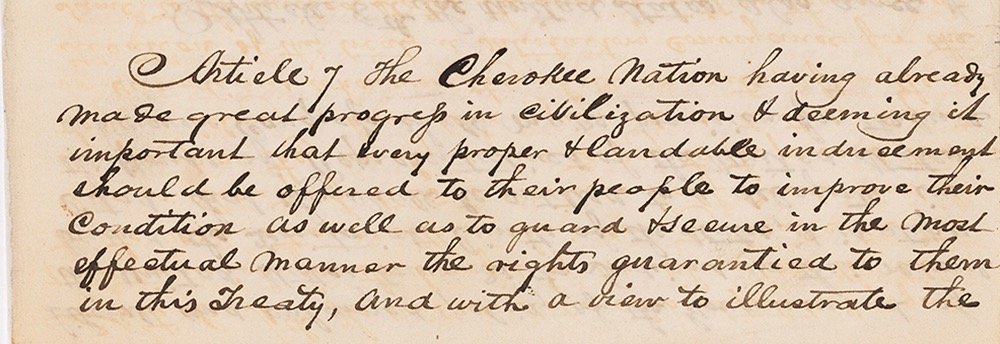Timely
What makes Sarah Ridge's story timely?
Come with me now to Chapter 23, "Questions & Sealing Wax" in A Woman of Marked Character, Book One, where we see the Ridge and Watie families huddled around a campfire at New Echota, the former capital of the Cherokee Nation.
It's a chilly evening in February 1837. The meadow is filled with camps of Cherokees who have been forced from their homes. Sarah's brother and cousins have with them a copy of the Treaty that was signed there a year before, one the Army has on hand to supervise the enrollment of Cherokees for removal to the west. Family members are resolved to move and now wait for scheduling.
In the glow of the firelight, Sarah's brother John Ridge reads aloud: "Article Seven. The Cherokee nation having already made great progress in civilization . . ."
Their cousin Elias Boudinot says, "Yes, we have!" as he sweeps his arm out at the camps and firelights of Cherokees who have been forced from their homes with few possessions or provisions, and now wait to be processed and sent west. "Look at our great progress toward civilization!"
John reads on, his tone matching Elias's sarcasm, "And deeming it important that every proper and laudable inducement should be offered to their people to improve their condition as well as to guard and secure in the most effectual manner the rights guaranteed to them in this treaty, and with a view to illustrate the liberal and enlarged policy of the Government of the United States towards the Indians in their removal beyond the territorial limits of the States . . ."
Their cousin Stand Watie adds, "If we ever get there!"
Others of the family—enjoying the sad lightheartedness of the cousins and relieved to be gathered together for perhaps one final time—join with muted huzzahs and wave of their pipes as John finishes reading: “ . . . it is stipulated that they shall be entitled to a delegate in the House of Representatives of the United States whenever Congress shall make provision for the same.”
~~~
This is the provision of which The Nation magazine writes below and is still unresolved these 189 years later.
From The Nation
November 14, 2023
One of the Oldest Broken Promises to Indigenous Peoples Is for a Voice in Congress
Two hundred and thirty-eight years ago, in the immediate aftermath of the American Revolution against the British Empire, representatives of the former colonies that were then governed under the Articles of Confederation and Perpetual Union negotiated a treaty with the Cherokee people. Among the many issues addressed by the Treaty of Hopewell was the question of how Indigenous peoples might make their voices heard in the new systems of government that were only then emerging in the US. The answer came in Article XII, which promised that the Cherokee “shall have the right to send a deputy of their choice, whenever they think fit, to Congress.”
This commitment was reaffirmed and clarified by the US government—now operating under the more formal dictates of the US Constitution—a half-century later in the 1835 Treaty of New Echota. That infamous document was written at a time when the administration of President Andrew Jackson was scheming to implement the forcible removal of the Cherokee people, via the “Trail of Tears,” from their historic lands in states east of the Mississippi River to what is now Oklahoma.
The backstory of the treaty recalls what The New York Times has referred to as “one of the darkest moments in American history and the string of broken promises to Indigenous people across the nation.” As the Times reminds us, “The treaty led the U.S. government to force 16,000 members of the Cherokee Nation on the Trail of Tears, a deadly trek to land in what is now Oklahoma. A quarter of those forced to leave—about 4,000—died before they arrived, as a result of harsh conditions, starvation and disease.”
Yet, buried in the 1835 treaty was a clearly stated “stipulation” that reasserted the right of congressional representation and declared that the Cherokee Nation “shall be entitled to a delegate in the House of Representatives of the United States whenever Congress shall make provision for the same.” [Emphasis mine]
Yes, Sarah's story is truly timely.
For more on the controversy, please read the entire article
https://www.thenation.com/article/politics/cherokee-delegate-congress-delay/
Or The New York Times
https://www.nytimes.com/2022/11/03/us/cherokees-congress-delegate-treaty.html
Or search the internet for cherokee representative in congress
Illustrations from the Treaty of New Echota, Article 7
(Credit: The National Archives and the Smithsonian National Museum of the American Indian)
…following page


